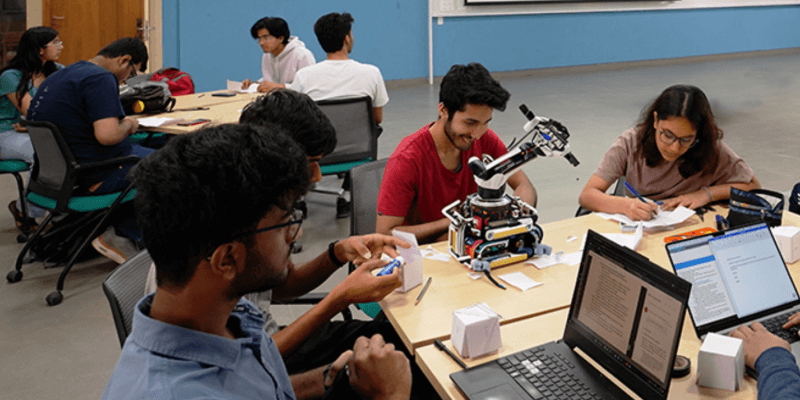Since my joining as a faculty at Plaksha University, I have been privileged to be a part of Plaksha’s journey as it aspires to be one of the leading scientific institutions in India and worldwide. Startup culture coupled with divergence from the traditional ways of running a university, Plaksha’s approach remains unique as it aims to reimagine the higher education ecosystem. Here is the brief context and summary of what can be termed as the ‘Plaksha way’ of reimagining the research landscape effectively.
Our training as PhDs or postdocs often took place within the narrow confines of a niche field. While great for personal development, networking and understanding the nuances of a particular field, it also often instils a ‘herd instinct’. On a positive side, a budding researcher develops the necessary skillsets to thrive in one’s own comfort zone. However, it can also isolate someone from the broader scientific communities where many new discoveries are emerging rapidly. Scientific viability therefore necessitates the need to perform interdisciplinary research to achieve a breakthrough. Yet, doing something truly groundbreaking, even at a small scale, often becomes challenging due to lack of a collaborative research environment that fosters such atmosphere. At Plaksha, contrasting to the traditional norms, there is a natural ecosystem in fostering interdisciplinary research. The university recognises the value of deep expertise that each faculty brings and simultaneously encourages the faculty to engage in broader, interdisciplinary "grand challenges" research programmes. In accord, the university has established multiple independent research centres focused on critical areas like energy, health, water, and agriculture. These centres are designed to tackle complex problems that require collaborative efforts. Each research centre therefore provides a platform for diverse scientific minds (coming from equally diverse fields with unique expertise) to collaborate on projects that are often beyond the comprehension of an individual faculty or lab per se . This ‘Plaksha way’ of doing interdisciplinary research aligned to grand challenges and at the same time providing one enough space to retain their core expertise pertaining to their comfort zone is truly significant. Credit must be given to our visionary founders and vice chancellor for their guidance and leadership in contemplating and facilitating such a cohesive research ecosystem at Plaksha University.
Dr. Swagata Halder is an Assistant Professor at Plaksha University



